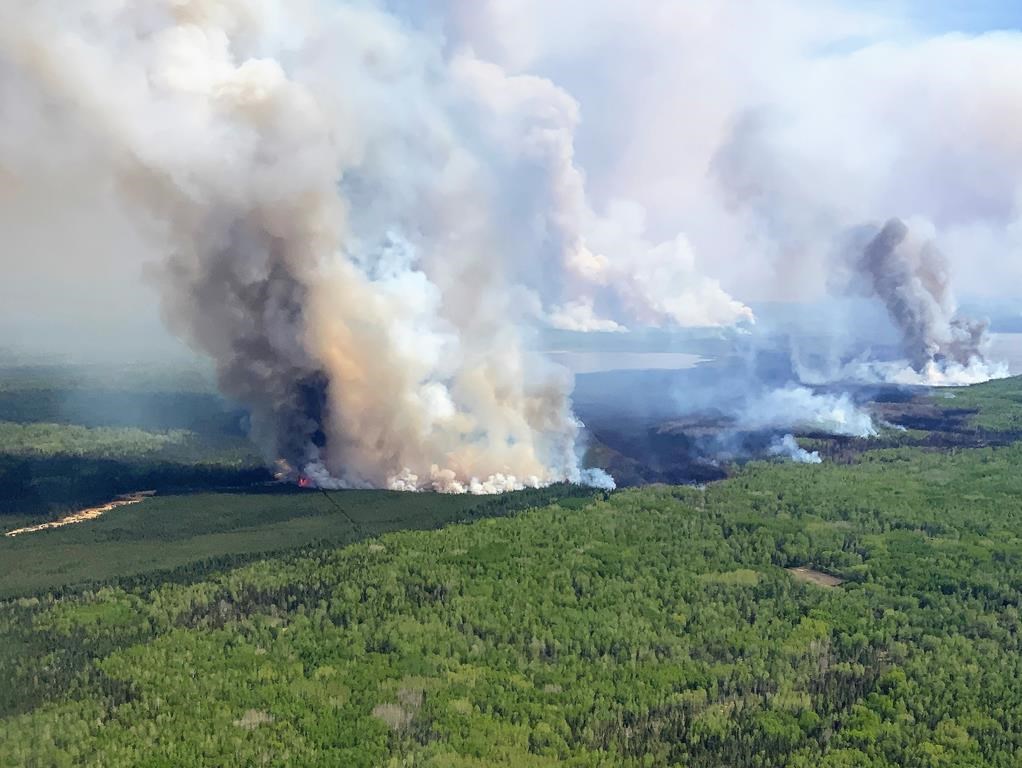What impact does wildfire smoke have on agriculture?

Posted May 18, 2023 3:20 pm.
This spring has brought forth an active wildfire season in Western Canada, but as spring turns into summer, what impact will the fire and smoke have on agriculture across the prairies?
As of Thursday afternoon, there were 92 active wildfires in Alberta and 24 in Saskatchewan, spreading thick smoke across much of the prairies. Todd Lewis from the Canadian Federation of Agriculture, who also farms in southern Saskatchewan, says these wildfires are concerning.
“We certainly do not want to see the smoke and we would way rather have no fires and want to see those fires out and hopefully some good timely rains where it’s needed here in the prairies,” explained Todd Lewis, vice president of the Canadian Federation of Agriculture.
Lewis says the fire and smoke can damage the fields and crops going forward, but it’s also impacting important infrastructure, like power lines, and is also impacting livestock.
“Water availability for cattle and sheep is very important and if we don’t have the water on the range for those animals, you can feel the effects quickly. Animals have to be moved or water has to be brought in or new wells dug those kind of things.”
Pam de Rocquigny, the CEO of the Manitoba Crop Alliance, says she doesn’t believe the current air quality and smoke will have an impact on farmers in Manitoba.
“It really is on a case by case, year by year basis in terms of how severe the wildfires are, how hazy of conditions it causes, what kind of impact of the air quality, because obviously it depends on how extended those situations last. It could only last for a day or two. There is probably going to be minimal impact if we see it starting to extend to longer periods,” explained de Rocquigny.
Manitoba Farmer Lorne Hamblin says in some cases, the smoke acts as a cloud cover, which protects the crop from harsh temperatures and direct impact of the UV rays from the sun, but in May, during seeding, it’s imperative to have blue skies and sun.
“We have had a very cool spring, and specific crops want specific moisture when they are going into the ground whether it’s corn or soybeans, so you want more moist soil, and certainly the smoke in the air will defer that sun from getting through to warming up the soil.”
Neil Johnston, president of the Lung Association in Manitoba, says wildfire smoke can bring significant impact on lung health and other systems in the body, especially for those that work outside.
“It can be a cumulative effect, both for lung health and other systems, so it is something we caution people to really take seriously and just like any clean air situation, to really be careful of what you are inhaling and try and avoid it if you can.”
Lewis says he, like many others, are hoping for some timely rains as soon as possible.
“Mother nature is the only thing that can really help this situation right now as we need some timely rains and lots of it in western Canada.”








